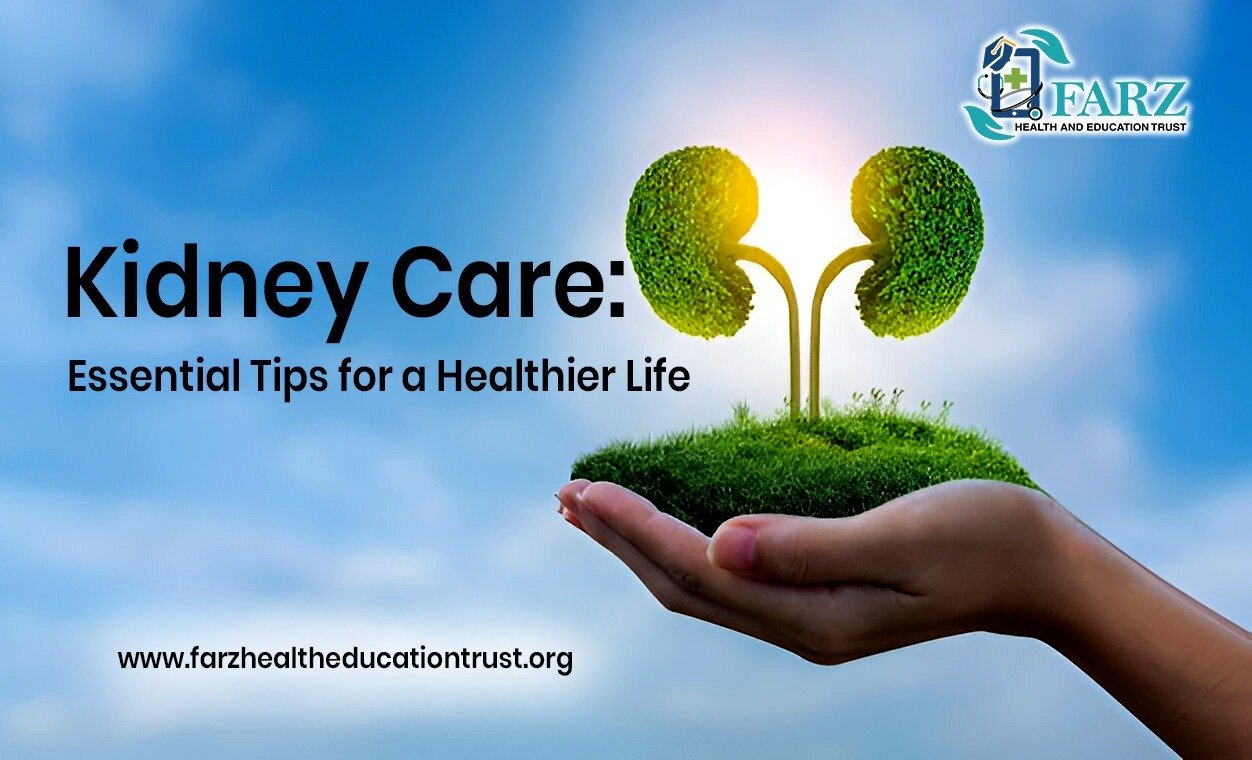
Introduction:
Welcome, dear readers, to a journey towards better health and vitality! Today, we’re diving into a topic that’s crucial for our overall well-being but often doesn’t get the attention it deserves: kidney care. Our kidneys are unsung heroes, tirelessly working to filter waste, balance fluids, and regulate blood pressure. In this article, we’ll explore essential tips for maintaining healthy kidneys and, by extension, a healthier life. So, grab a cup of your favorite herbal tea, and let’s get started!
Understanding Your Kidneys:
Before we delve into care tips, let’s take a moment to appreciate what our kidneys do. These bean-shaped organs, located just below the rib cage on either side of the spine, filter about 150 quarts of blood daily, producing about 1 to 2 quarts of urine. They play a pivotal role in removing waste and excess fluid, maintaining electrolyte balance, and even producing hormones that regulate blood pressure and red blood cell production.
Hydration: The Foundation of Kidney Health:
Water is life, and nowhere is this truer than in kidney health. Staying well-hydrated helps your kidneys clear sodium, urea, and toxins from the body, reducing the risk of developing kidney stones and urinary tract infections. Aim for about 8 glasses of water a day, adjusting based on your activity level and climate.
Diet: Nourish Your Kidneys
A balanced diet is key to kidney care. Here are some dietary tips:
- Reduce Salt Intake: Too much sodium can increase blood pressure and stress your kidneys. Use herbs and spices for flavor instead of salt.
- Choose Kidney-Friendly Foods: Foods rich in antioxidants, such as berries, apples, and onions, support kidney health. Incorporate more whole grains, vegetables, and lean proteins into your diet.
- Monitor Protein Consumption: While protein is essential, excessive amounts can strain your kidneys. Consult with a healthcare professional to determine the right amount for you.
- Limit Phosphorus and Potassium: If you have kidney issues, your doctor may advise limiting foods high in phosphorus (e.g., dairy, nuts) and potassium (e.g., bananas, avocados).
National Deworming Day: Steps to Take for a Worm-Free Future
Regular Exercise: A Catalyst for Health
Physical activity does wonders for your entire body, including your kidneys. Exercise helps maintain a healthy weight, control blood pressure, and improve heart health, all of which are beneficial for kidney function. Aim for at least 150 minutes of moderate exercise, such as brisk walking, cycling, or swimming, per week.
𝐇𝐞𝐚𝐥𝐭𝐡𝐲 𝐇𝐚𝐛𝐢𝐭𝐬: 𝐏𝐫𝐞𝐯𝐞𝐧𝐭𝐢𝐧𝐠 𝐚𝐧𝐝 𝐌𝐚𝐧𝐚𝐠𝐢𝐧𝐠 𝐎𝐛𝐞𝐬𝐢𝐭𝐲
Avoid Excessive Use of Over-the-Counter Medications:
Overusing certain medications, particularly nonsteroidal anti-inflammatory drugs (NSAIDs) like ibuprofen and naproxen, can harm your kidneys. If you have chronic pain, talk to your healthcare provider about safer alternatives.
Regular Check-Ups: Prevention is Better than Cure
Regular health screenings are crucial for early detection and prevention of kidney disease. This includes blood pressure checks, blood and urine tests, and discussions with your healthcare provider about your risk factors.
Lifestyle Choices: Beyond Diet and Exercise
Other lifestyle factors can impact kidney health:
- Quit Smoking: Smoking can damage blood vessels, reducing blood flow to the kidneys. Seek help to quit if you’re a smoker.
- Limit Alcohol: Excessive alcohol can raise blood pressure and contribute to kidney damage. Enjoy in moderation.
- Manage Stress: Chronic stress can increase blood pressure and affect kidney function. Explore stress-reduction techniques like meditation, yoga, or deep breathing exercises.
Celebrating Women: Stories of Strength and Resilience
Conclusion:
Caring for your kidneys is a lifelong commitment that pays dividends in overall health and well-being. By staying hydrated, eating a balanced diet, exercising regularly, and making smart lifestyle choices, you can support your kidneys’ vital functions and enjoy a healthier life. Remember, prevention is key, and small, consistent steps can lead to significant improvements in your kidney health.
So, here’s to healthier kidneys and a happier you! If you have any concerns about your kidney health, don’t hesitate to reach out to a healthcare professional. Stay informed, stay proactive, and let’s keep those kidneys happy and healthy!
Cheers to a healthier life!
